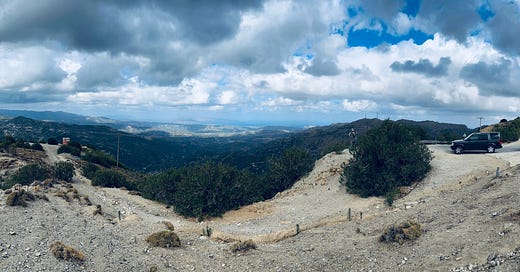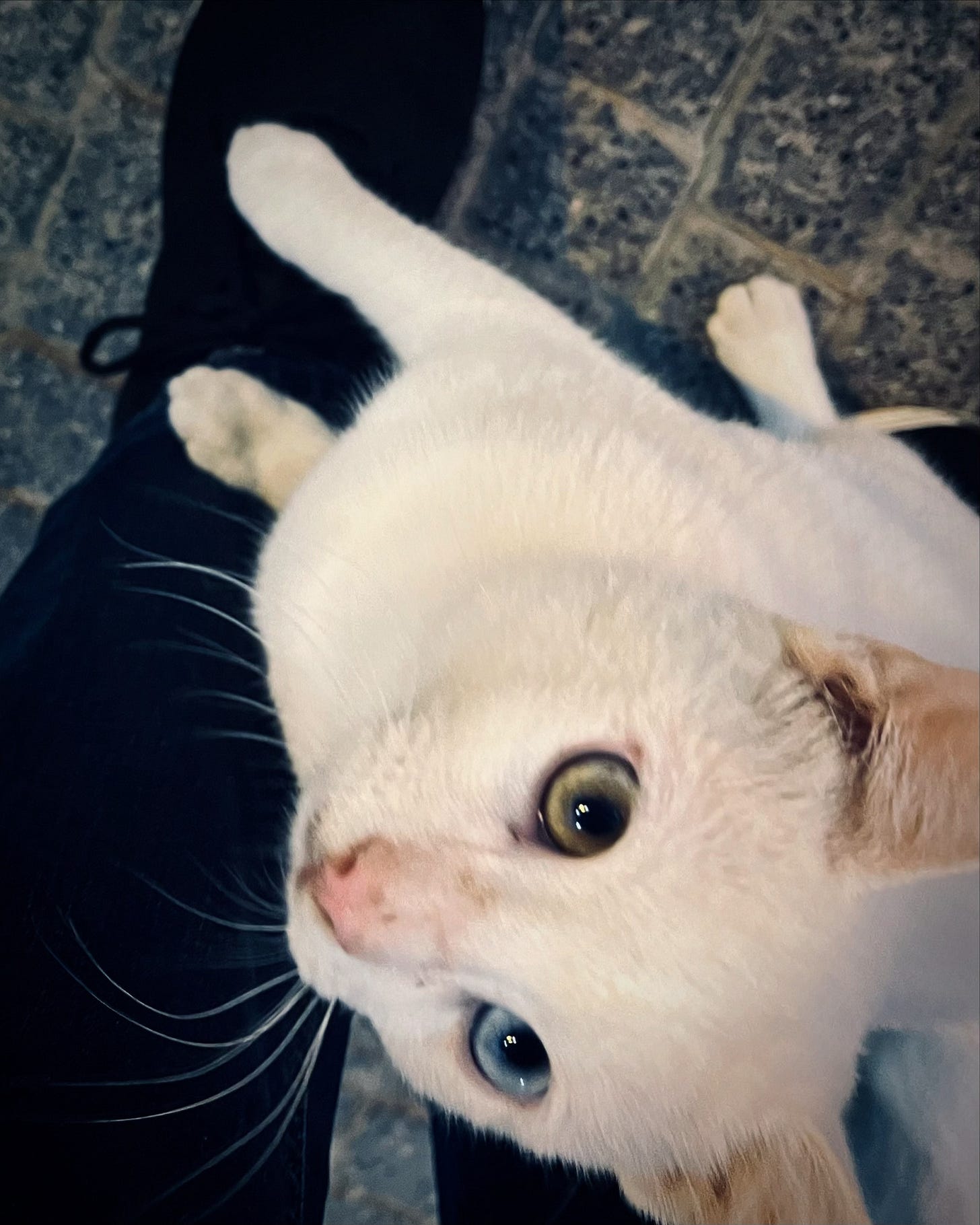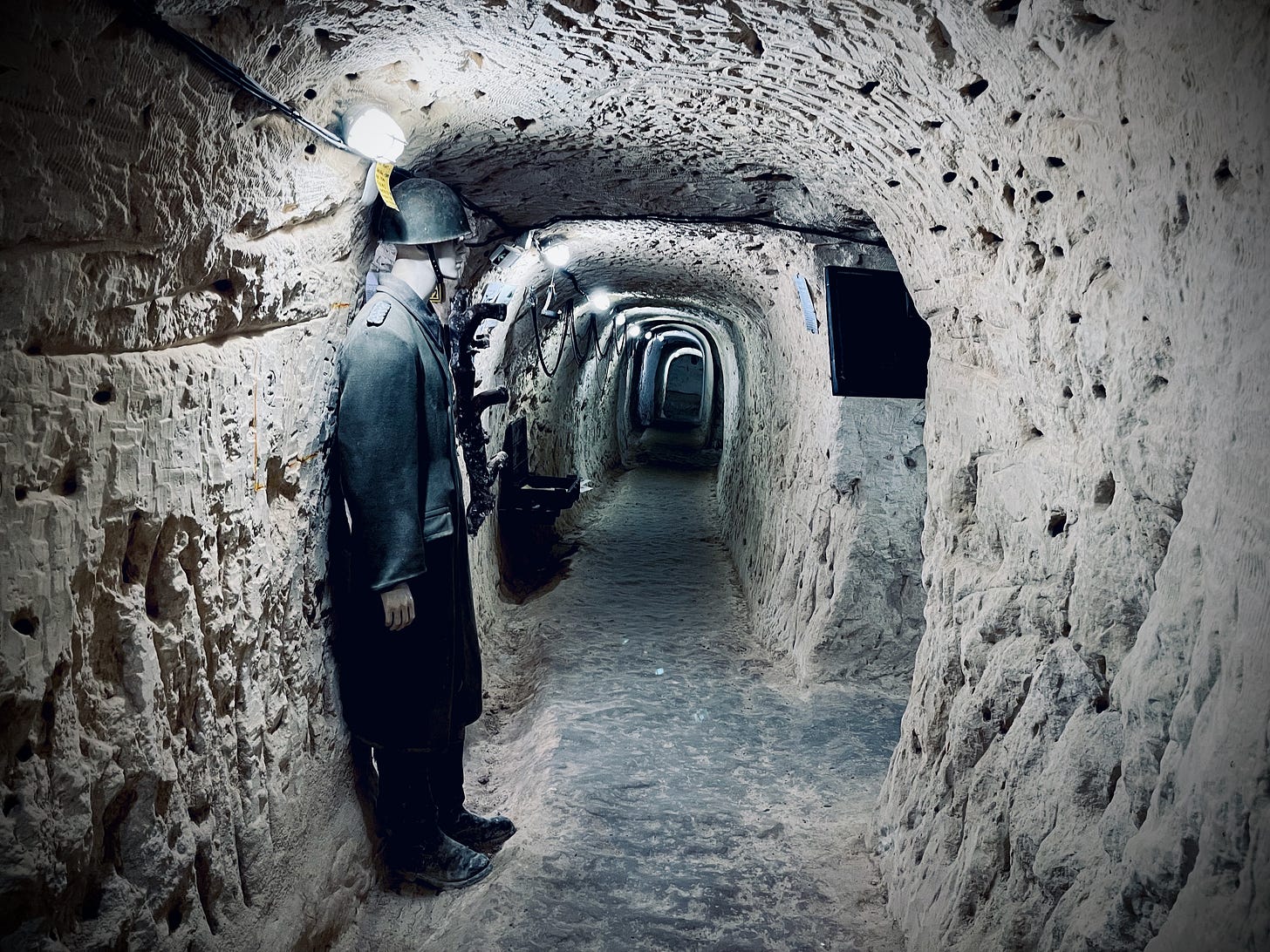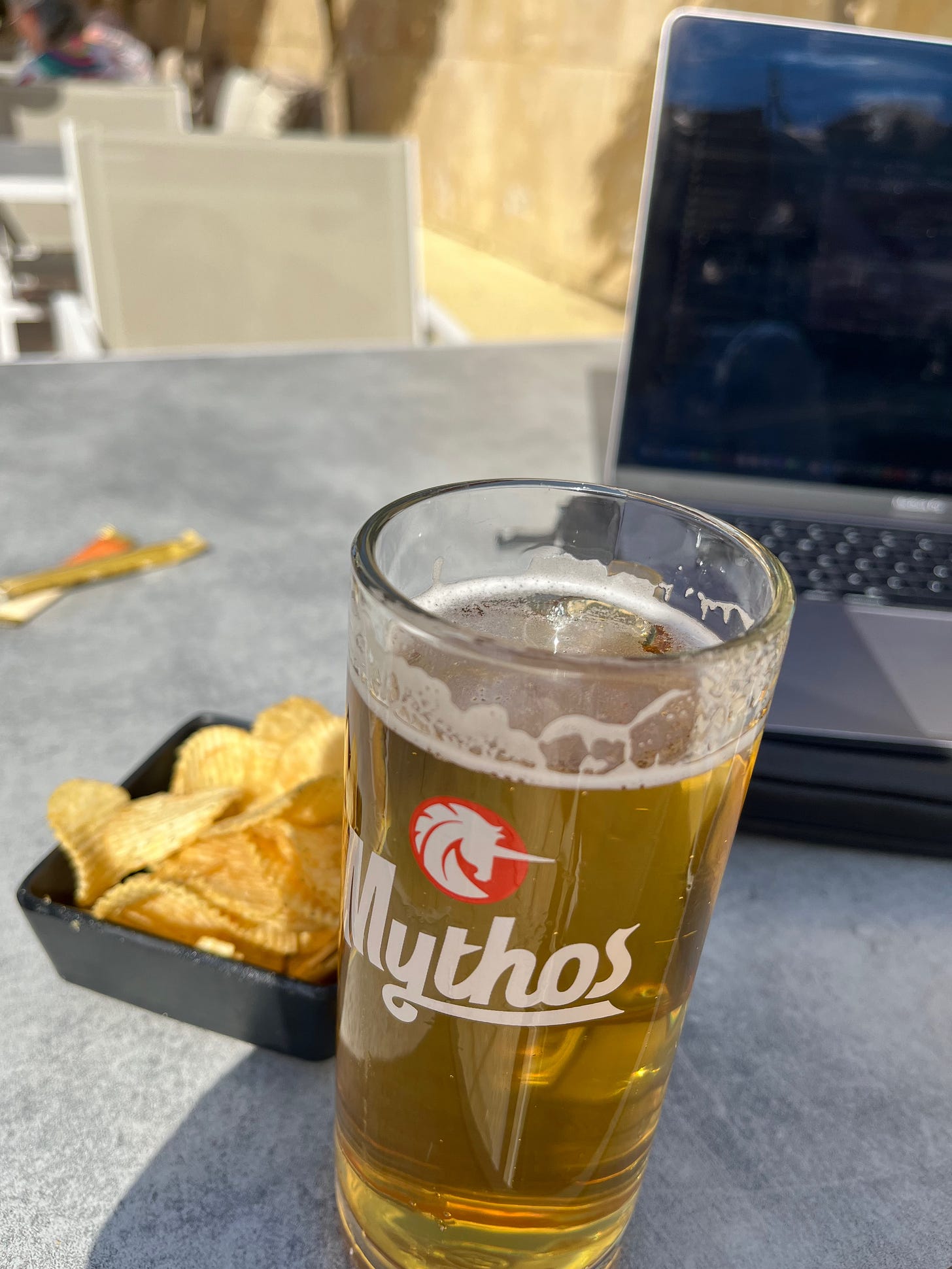Crete: a haunted idyll?
The Greek holiday paradise with a painful past and a challenging future
I have just returned from a memorable holiday in Crete, my first visit to that Greek island. I was staying with my girlfriend in Chania, an ancient port city towards the north-west side of the island.
It’s been a week of contrasts: one day being lucky enough to run on the fine sands of Agia Marina – conspicuous for its complete lack of a marina – then the next day, having returned to the UK, running on fallen leaves in a park in the heart of the English Chilterns. Whisper it, but I fell over where the brutal stub of a deceased tree was covered up.
The case opens of Lacey vs. Leaves.
But I have so many fond Cretan memories: the warm hospitality of those we met, from the Italian holiday rep who I got chatting to about his plans for a novel (‘It’s based on Dante’s Inferno, but with lots of sex’) to a chatty restaurateur who struggled to find staff who would motivate themselves in downtime (‘You’re only busy for three hours in an eight-hour shift, so you can always find time to polish glasses, dust surfaces…’).
And cats.
Loads of them, including a white one with one blue and one yellow-green eye who I therefore thought of as the reincarnation of David Bowie. But strangely it was reprising a song by Stereophonics – see photo below.
Time tunnels
The memory which is likely to have the most lasting impact on me, though, was a visit to a two-hundred metre system of tunnels, half an hour’s walk from Agia Marina.
By way of background Crete’s history had one of its many invasive shocks when, on the morning of May 20, 1941, Nazi paratroopers landed en masse. The Allies, including Australian, New Zealander and British forces, put up a brave fight but tactical errors led to the hostile forces gaining control of an important airfield in the west of the island.
Thanks to the tenacity of the Cretans and the wider efforts of the Allies the Nazi occupation of the island came to an end
As occupying troops were putting down roots, their masters decided to make an ammunition store within a hill just back from the coast, the War Shelter of Platanias. It is now a visitor attraction run by volunteers, but the tunnels were originally gouged out of the rock by forced local labour, an amazing feat in itself.
Wells, Hitler – and Orwell
As well as trying to imagine the acute historical suffering of a place which was offering me such Dionysian delights as great food and wine, plus bodysurfing on the lively incoming waves, I was continuing work on my second novel, My Nights with George Orwell.
It seemed appropriate that the Greek lager on draft at my hotel, which I confess accompanied some of my work, was Mythos, which my dictionary tells me in literature denotes ‘a traditional or recurrent narrative theme or plot structure’.
In revisiting some of Orwell’s essays by the hotel pool, it was salutary to be reminded that in the same year those Axis paratroopers landed barely miles from where I was tapping at my laptop, writer H. G. Wells was misreading wartime events as indicating ‘German air power has been largely spent.’ Orwell quotes this in ‘Wells, Hitler and the World State’.
He rails against intellectuals like Wells who saw Hitler as ‘merely a figure out of comic opera, not worth taking seriously’. Similarly, from the other end of the chronological telescope, I recall American playwright Arthur Miller saying in his brilliant autobiography Timebends that after the Second World War it was hard for him to persuade younger people how fearsome Hitler was in his pomp. Often what they saw was merely footage of an apparently camp performer animated by rage gesticulating wildly.
Happy never after? The new war
Thanks to the tenacity of the Cretans and the wider efforts of the Allies the Nazi occupation of the island came to an end, but not without huge casualties on all sides. My Nights with George Orwell is in part about the Spanish Civil War, but for Greece the power vacuum at the end of the Second World War led to their own civil war from 1946 to 1949.
In another example of contrasts in my Cretan holiday, a four-wheel drive adventure into the White Mountains revealed the new fronts in the island’s ecological and depopulation war. Amid stories from our guide and driver of 45 Celsius summers, we saw first-hand how the emaciated olive crop isn’t ready to be picked now at what would be normal harvesting time, due to severe lack of rains this year.
Shortly afterwards we had a coffee stop in the beautiful village of Deres, but learned that its already small previous population of 300 has now dwindled to 20; its young people are heading into bigger centres for work.
Crete expectations
I have every faith that the resourcefulness of the Cretans will continue to serve them well into the future as it has in the past.
But that jewel in the Mediterranean shows fragility as well as beauty.








I like how you draw threads of your holiday together to spin new stories, like Princess Ariadne. Those tunnels looked oddly familiar?